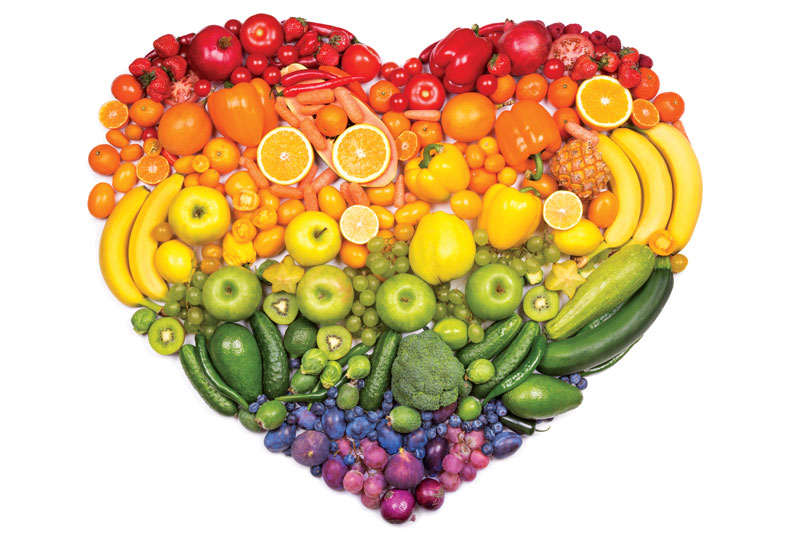
Prevention Is The Best Cure
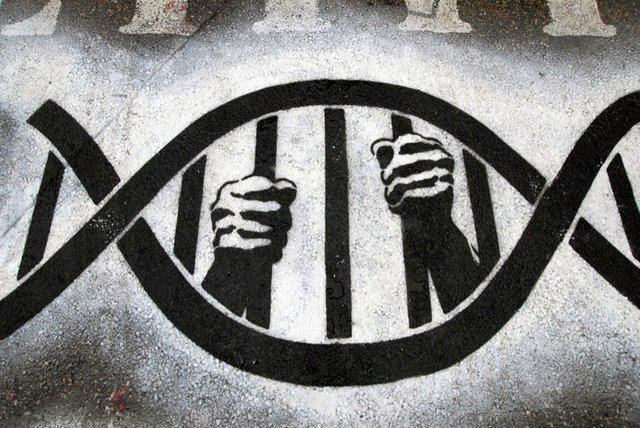
Slave To Your Genes?
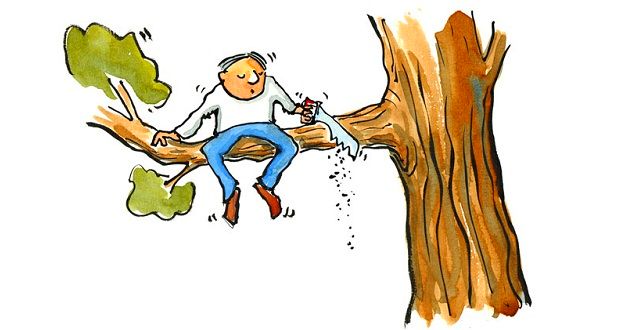
Common Sense

Cholesterol
Diet & Supplement Ideas
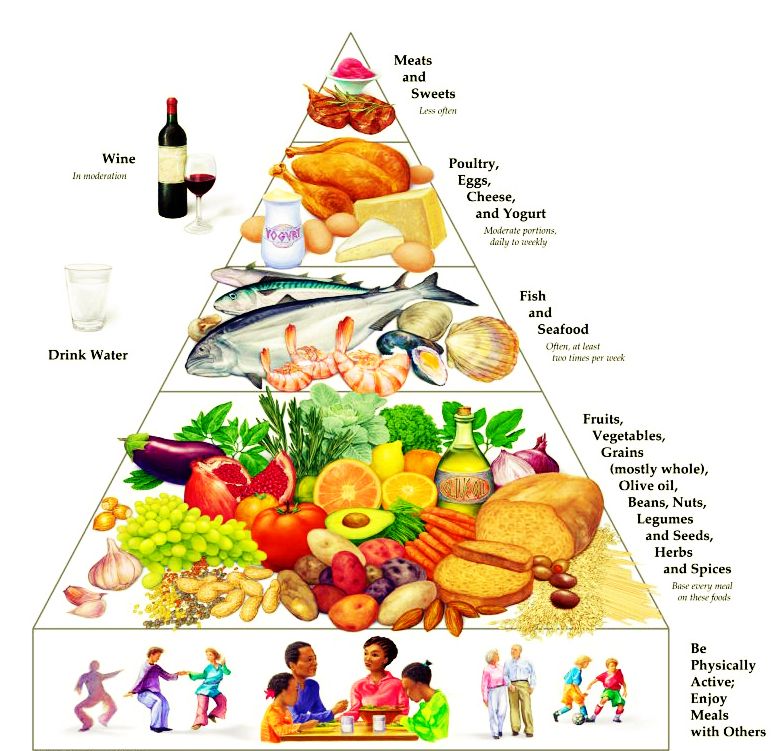
The Mediterranean Diet
Key components of the Mediterranean diet
• Eating primarily plant-based foods, such as fruits and vegetables, whole grains, legumes and nuts
• Replacing butter with healthy fats such as olive oil and canola oil
• Using herbs and spices instead of salt to flavor foods
• Limiting red meat to no more than a few times a month
• Eating fish and poultry at least twice a week
• Enjoying meals with family and friends
• Drinking red wine in moderation (optional)
• Getting plenty of exercise
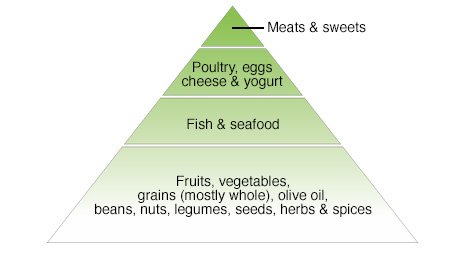
Fruits, vegetables, nuts and grains
The Mediterranean diet traditionally includes fruits, vegetables, pasta and rice. For example, residents of Greece eat very little red meat and average nine servings a day of antioxidant-rich fruits and vegetables.
Grains in the Mediterranean region are typically whole grain and usually contain very few unhealthy trans fats, and bread is an important part of the diet there. However, throughout the Mediterranean region, bread is eaten plain or dipped in olive oil — not eaten with butter or margarines, which contain saturated or trans fats.
Nuts are another part of a healthy Mediterranean diet. Nuts are high in fat (approximately 80 percent of their calories come from fat), but most of the fat is not saturated. Because nuts are high in calories, they should not be eaten in large amounts — generally no more than a handful a day. Avoid candied or honey-roasted and heavily salted nuts.
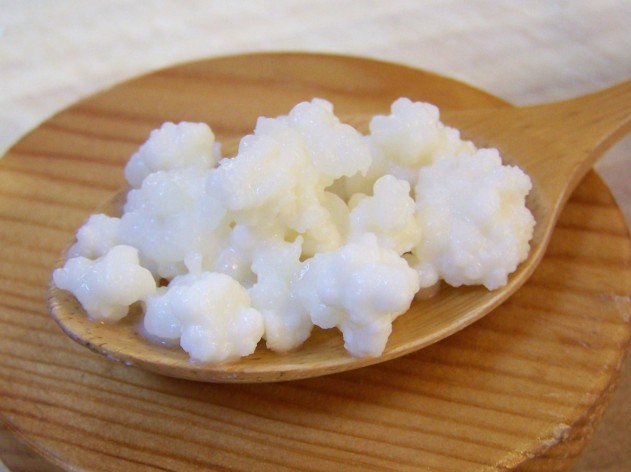
Kefir
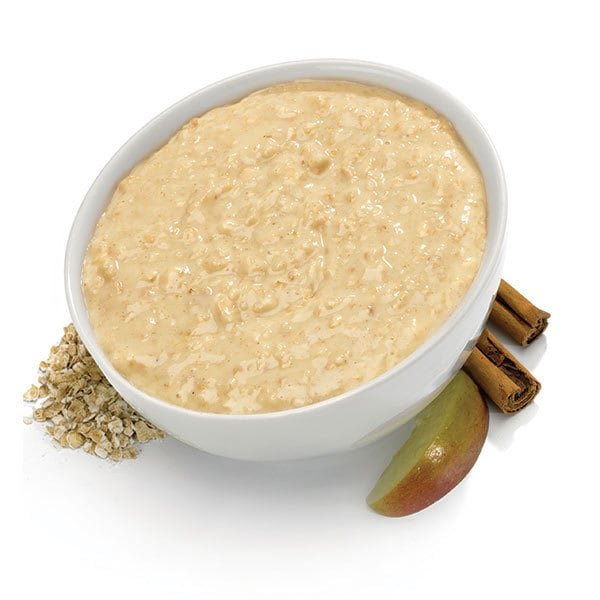
Porridge
The findings were gleaned from 24 studies that looked at blood lipids (cholesterol and triglycerides) in people who ate diets featuring whole-grain foods versus non-whole-grain control diets. Compared with the control diets, whole-grain diets lowered total cholesterol levels by an average of 4.6 points. Diets featuring oats proved to be slightly superior, dropping cholesterol levels by 6.5 points, on average. An added bonus: whole-grain diets don't appear to lower beneficial HDL cholesterol. The report appeared in the September 2015 American Journal of Clinical Nutrition.
To eat more whole-grain oats, try the steel-cut version (also called Irish oats), which is oats chopped into small pieces. Or opt for the more popular rolled or old-fashioned oats, which are steamed and rolled into thin flakes. If you're not keen on hot cereal, consider a cold cereal made from oat bran. You can also grind rolled oats in a blender and add them to baked goods, soups, and casseroles.
Harvard health
Magnesium Spray
• Kidney Failure
• Renal Failure
• Are on Dialysis
• A Kidney Doctor or Nephrologist
• Impaired Kidney Function
You should also NOT take magnesium if you currently have an excessively slow heart rate, myasthenia gravis or a heart condition called Atrial Fibrillation unless you specifically get instructions from your doctor to do so.
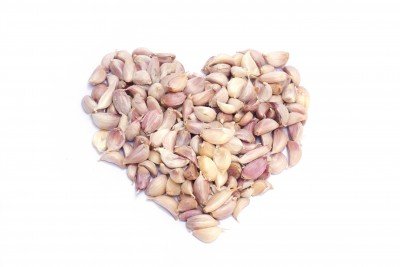
Garlic
In terms of heart health garlic has some amazing properties but it's not a quick fix and I'd reccomend a daily intake over 12-18 months in order to receive the full benefits. Garlic has been shown to clean your blood and clear clogged arteries. Of course it's great to cook with garlic but the best way to use it is raw and crushed. The crushing action causes an enzyme reaction that boosts the garlics health properties, in order to optimise these properties it's best crushed at room temperature and then left to sit for fifteen minutes.
• Reduces artery plaque formation.
• Lowers blood pressure. Many studies confirm that systolic blood pressure drops by 10% on average in those who use garlic.
• Decreases LDL particles.
• Decreases LDL oxidation. This is the “holy grail” when it comes to damaged lipid and heart risk.
• Lowers triglycerides.
• Inhibits platelet aggregation.
• Increases fibrinolytic activity as garlic acts as a natural clot buster.
• Lowers blood sugar.
• Anti-cancer. Lowers prostate cancer risk by 23%. Lowers lung cancer risk by 44%. Almost 1000 studies on garlic and cancer.
• Anti-microbial.
Allicin is the compound to thank for garlic’s medicinal properties. Allicin contains sulfur which is critical for cellular detoxification and chemical removal. It is absorbed well then quickly metabolized to benefit the cardiovascular system and the rest of the body.

Cook With Coconut Oil
Adequate CoQ10 is particularly vital for the cardiovascular health. Inadequate CoQ10 levels have been noted in incidences of many chronic illnesses. Lack of CoQ10 can cause Rhabdomyolysis, which is the breakdown of muscle fibres that leads to the release of muscle fibre contents (myoglobin) into the bloodstream. Myoglobin often causes kidney damage. Notably, rhabdomyolysis has often been observed in patients who take statin drugs. It is tragic that statin drugs which are prescribed for reputed heart benefits lower CoQ10 production by up to 40%.
CoQ10 is also an important antioxidant which inhibits both the initiation and the propagation of lipid and protein oxidation. Additionally, it regenerates other antioxidants such as vitamin E. One recent study demonstrated that low doses of CoQ10 reduced oxidation and DNA double-strand breaks, and that a combination of CoQ10 and a diet rich in polyunsaturated fatty acids leads to a longer lifespan.
CoQ10 is also found in relatively small amounts in a wide variety of foods, with the highest amounts found in organ meats such as heart, liver and kidney, as well as beef, sardines, mackerel, and peanuts. Other food items with modest amounts of CoQ10 include grapeseed oil, walnuts, hazelnuts, pistachios, parsley, spinach, sesame seeds, olive oil and avocado. Food sources alone may not be enough for those deficient in CoQ10. To put dietary CoQ10 intake into perspective, one pound of sardines, two pounds of beef, or two and one half pounds of peanuts, provide only 30mg of CoQ10.
• Supports a healthy heart and body.
• Helps maintain a youthful and active lifestyle.
• Vital component for Longevity.
• Supports healthy kidneys.
• May provide relief from migraine headaches.
• Promoting cell energy and all-over nutrition.
• Supports normal healthy blood pressure.
As we age, we lose much of our supply of CoQ10, particularly in the heart. At the age of 80, for example, CoQ10 levels are cut by more than half. CoQ10 benefits and protects the heart in many ways, including helping lowering high blood pressure and preventing the oxidation of LDL cholesterol. The effectiveness and safety of CoQ10 in the treatment of congestive heart failure has been well established by numerous studies. One recent study also found that CoQ10 can improve survival after a cardiac arrest.
CoQ10 is not a magic bullet. It is an important compound that our bodies produce, but production declines as we age. It functions best in conjunction with a decent diet and other quality supplements. Foods such as organic organ meats, oily fish, spinach, peanuts, and whole grains provide some CoQ10.
It likes to lodge in the parts of our cells that produce energy, and is instrumental for producing the molecule adenosine-5-triphosphate (ATP). ATP is a major source of cellular energy, and it's involved with several metabolic processes within the cell, including protein production. Beside its antioxidant capabilities, which scavenge damaging free radicals that cause cellular damage, it appears able to repair oxidative damage. CoQ10 prevents problematic blood clotting. All these qualities have made it a favourite for increasing cardiovascular health and for preventing heart diseases or recovering rapidly from heart problems.
In addition to hundreds of reports from Japanese doctors on CoQ10's positive effects with heart patients, Dr. Denton Cooley found that most of his heart disease patients were CoQ10 deficient. His finding corroborates discoveries from Karl Folker, Ph.D, who had originally researched CoQ10 in the west. For athletic types or those who are involved in strenuous activities, CoQ10 offers rapid recovery times from spent energy and muscular stress as well as additional energy too for competing athletically or completing arduous physical tasks.Source
Cayenne Pepper
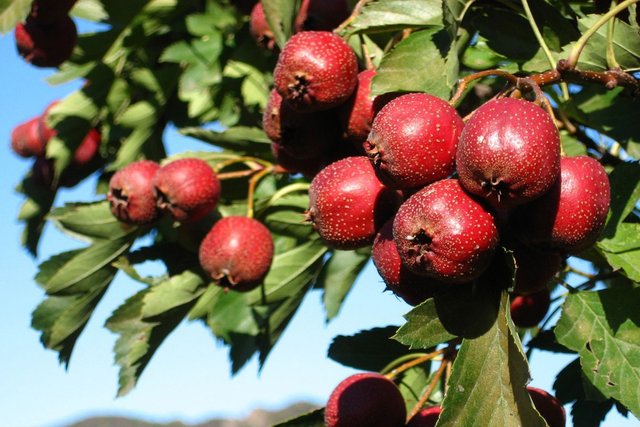
Hawthorn Extract & Tincture
Hawthorn is best known as a cardiotonic herb. This basically means that it can do wonderful things for the heart. Studies show that the small but mighty hawthorn berry is loaded with health boosting properties. These properties can help a range of chronic health problems from high cholesterol to angina. Hawthorn fruit, leaves and flowers are all used medicinally today. Hawthorn fruit comes in the form of little red berries. Native American tribes enjoyed eating them and they also used hawthorn to treat heart troubles, as well as gastrointestinal complaints. (2) Early records indicate that the hawthorn tree was a symbol of love.
What is it about Hawthorn Berries?
It appears to be their numerous flavonoids for starters. Flavonoids are potent antioxidants known to effectively decrease inflammation while boosting immune function. Eating a diet high in flavonoid-rich foods, beverages and herbs has been linked to prevention of cardiovascular and neurodegenerative diseases as well as cancer. (3) Let’s look closer at exactly how a tiny little hawthorn berry can actually make huge improvements in many people’s health.
The hawthorn bush, also called thornapple or May-tree, is a deciduous plant. It is a member of the rose family (Rosaceae) belonging to the genus Crataegus. Hawthorn can come in the form of a thorny hawthorn bush or a hawthorn tree. Most of the time, you can find hawthorn growing along the sides of sunny wooded hills. There are various species of hawthorn, many of which are found in North America. (4)
A hawthorn plant has berries as well as flowers that bloom in May. Hawthorn flowers are red, pink or white. The petite hawthorn berries appear after the flowers have bloomed. When the hawthorn berries fully ripen, they are typically red in color, but sometimes they are black. These berries are edible. How do they taste? Most people describe hawthorn berries as a mix of sweet and sour.
The hawthorn herb is loaded with health beneficial compounds. These compounds have been shown to really boost heart health. Hawthorn’s antioxidant flavonoids improve blood flow, guard against blood vessel damage, and even help to dilate blood vessels. (5) These flavonoids include OPCs. What are OPCs? OPC stands for oligomeric proanthocyanidins. OPCs are some of the most prevalent polyphenolic substances found in plants. (6) Here are just some of the many chemical compounds and nutrients found in hawthorn: (7)
• Flavonoids, including hyperoside.
• Quercetin.
• Vitexin.
• Rutin.
• Pentacyclic triterpenes.
• Acantolic acid.
• Neotegolic acid.
• Choline.
• Acetylcholine.
• Caffeic acid.
• Vitamin B1 and B2.
• Vitamin C.
• Calcium.
• Iron.
• Phosphorus.
Hawthorn berry is best known for its helpful toning effects on the heart. As a “cardiotonic herb,” hawthorn has shown itself to be impressively helpful for all kinds of serious heart concerns. These include heart failure, heart disease, angina pectoris, changes in cardiac rhythm, and atherosclerosis.† According to a 2016 study published in the journal Current Medicinal Chemistry, hawthorn’s powerful heart benefits come from its high polyphenolic content. (8)
To date, research has shown that hawthorn can even have a helpful effect on congestive heart failure (CHF). Multiple studies have shown that hawthorn supplementation has resulted in improved in cardiac function based on a number of parameters. These parameters include blood pressure, heart rate, cardiac output and exercise tolerance.
One trial in particular gave 78 patients with NYHA Class II heart failure a commercial preparation of hawthorn leaves and flowers. After two months, the patients receiving 200 milligrams of hawthorn three times per day had an increased working heart capacity, as well as a reduction in symptoms. The hawthorn group also showed a decrease in systolic blood pressure during physical activity. Another German study also showed that a hawthorn extract (LI132 Faros®) worked nearly as well as a prescription heart failure drug (captopril). And, the hawthorn extract had fewer side effects. (9)
Another cohort study of 952 patients with heart failure (NYHA II) had subjects take a hawthorn (Crataegus) special extract either alone or as an add-on to conventional treatment. After two years, fatigue, stress dyspnoea and palpitations (the three main symptoms of heart failure) were all significantly decreased in the group who took the hawthorn compared to the group who did not take hawthorn. (10)
Blood Pressure
Many herbal practitioners recommend hawthorn berries, flowers and leaves as natural blood pressure reducers.† A scientific study published in The British Journal of General Practice had 79 type 2 diabetic patients either take 1200 milligrams of hawthorn extract daily or a placebo for a total of 16 weeks. Hypotensive drugs were also taken by 71 percent of the study participants. What did they find? The hawthorn group experienced greater reductions in diastolic blood pressure. But, there was no group differences in systolic blood pressure reduction. (11) Hopefully more studies to back up hawthorn’s usage in lowering blood pressure are coming soon.
Chest Pains
Decreased blood flow to the heart causes chest pain known as angina. Sometimes it is confused with indigestion. But, true angina can be a symptom of coronary heart disease. So far, research is showing that hawthorn may be an effective natural remedy for avoiding and treating angina.†
According to a scientific article published in the Journal of Herbal Medicine and Toxicology, hawthorn’s bioflavonoids help to dilate both peripheral and coronary blood vessels. This can improve blood flow to the heart, making hawthorn very useful for angina. Hawthorn’s proanthocyanidins are also believed to reduce tension of the blood vessel walls. Again, this is very helpful to discourage angina. (12)
In one study, 80 subjects (aged 45 to 65 years) with stable angina pectoris were randomly divided into four groups. The first group was the aerobic exercise group. The second group took a hawthorn extract. The third group did aerobic exercise, plus they took a hawthorn extract. Finally, the fourth group was the control group. After 12 weeks, the researchers found that the combination of aerobic exercise and hawthorn supplementation were “an effective complementary strategy to significantly lower the risk of atherosclerosis and heart problems.” (13)
Cholesterol
Animal studies have shown that hawthorn berry extract may be a helpful natural remedy for the reduction of LDL (“bad”) cholesterol from the body. In China, hawthorn is called “Shan-Zha.” A study using animal subjects showed some really impressive health results from an ethanol extract of Zhongtian hawthorn, a cultivar of wild Shan-Zha, which has larger hawthorn fruit. This 2016 study revealed that the hawthorn berry extract not only reduced overall high cholesterol levels, it also notably decreased LDL cholesterol, liver cholesterol and triglycerides as well as body weight. (14)
Ful spectrum health
Scientific research conducted in 2008 revealed that hawthorn berry extract is excellent at decreasing inflammation. This is huge for health since we know that inflammation is at the root of most diseases. The research also shows that the extract of hawthorn berry is a free radical scavenger. This is extremely beneficial to human health since free radicals can cause cellular damage (including DNA damage) by stealing electrons through a process called oxidation. The 2008 animal study also demonstrated how hawthorn berry extract has protective effects for the gastrointestinal system and it appears to successfully kill off various types of unwanted bacteria. (15)
Warnings
You should not take hawthorn if you are pregnant or breast-feeding. Do not give hawthorn products to children. Supplementing with hawthorn is recommended for short-term use by adults. If any symptoms get worse when taking hawthorn, you should discontinue use and seek emergency medical care.
For some users, hawthorn can cause nausea, upset stomach, fatigue, sweating, headache, dizziness, palpitations, nosebleeds, insomnia, agitation and other side effects.
While hawthorn is known for being excellent for the heart, it can interact with prescription medications taken for heart disease. Medications for other heart concerns, high blood pressure and male sexual dysfunction are also known to interact with hawthorn. Some specific medications known to possibly interact with hawthorn include digoxin, beta-blockers, calcium channel blockers (CCBs), nitrates, phenylephrine and phosphodiesterase-5 inhibitors. If you have heart disease or any other health condition or are currently taking medication(s), check with your doctor before taking a hawthorn berry product or any other hawthorn supplement. Source
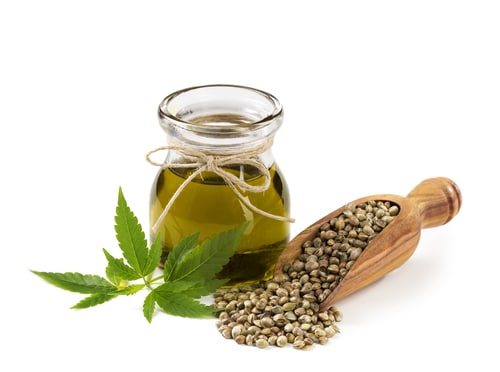
Hemp Oil
The fat profile of hemp seed oil is believed to prevent a wide range of heart conditions. A 2007 study discovered that the oil was able to prevent blood clotting. Researchers noted that this “may be of benefit in the protection against clot-induced strokes and myocardial infarctions.” In another study, researchers concluded that hemp seed oil may provide significant protection against stroke. And, a recent analysis conducted by the American Chemical Society found that the high levels of an omega-3 fatty acids in the oil may offer beneficial physiological effects for coronary heart disease prevention.
When it comes to hemp seed oil specifically, researchers have discovered that it is the specific sterols – organic compounds found in plants which are known to lower cholesterol and platelet aggregation – in the oil that are responsible for this potential prevention of heart problems. Hemp seed oil also contains tocopherols, which reduce the risk of degenerative heart diseases, among a number of other conditions.
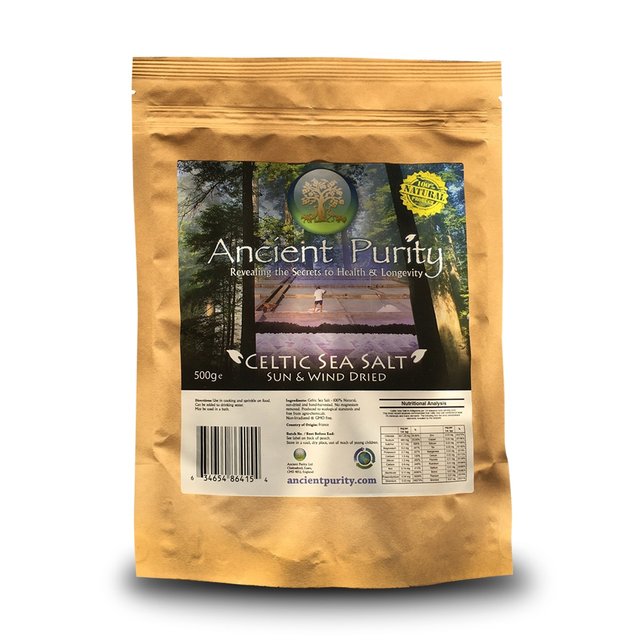
Don't Use Refined Salt For Cooking Use Celtic Sea Salt
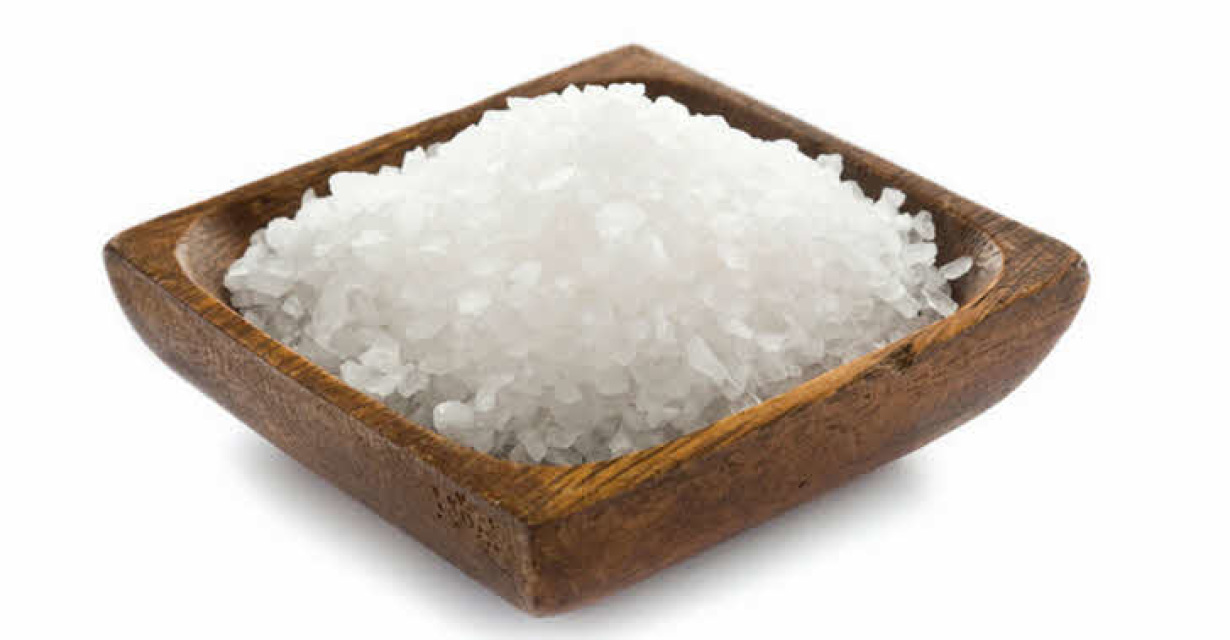
MSM Organic Sulphur
Sulphur is an essential element for all life, and is widely used in biochemical processes. In metabolic reactions, sulfur compounds serve as both fuels and respiratory (oxygen-replacing) materials for simple organisms. Sulfur in organic form is present in the vitamins biotin and thiamine, the latter being named for the Greek word for Sulphur. Sulphur is an important part of many enzymes and in antioxidant molecules like glutathione and thioredoxin.
Organically bonded sulfur is a component of all proteins, such as the amino acids cysteine and methionine. Disulfide bonds are largely responsible for the strength and shape of proteins. Since Sulphur bonds are required for proteins to maintain their shape, and these bonds determine the biological activity of the proteins, we can see why Sulphur is critical for health and life itself. Sulphur is required for the proper structure and biological activity of enzymes. If you don’t have sufficient amounts of Sulphur in your body, the enzymes cannot function properly. This can cascade into a number of health problems since, without biologically-active enzymes, your metabolic processes cannot function properly.
Because Sulphur is directly below oxygen in the periodic table, these elements have similar electron configurations. Sulphur forms many compounds that are analogs of oxygen compounds and it has a unique action on body tissues. It decreases the pressure inside the cell. In removing fluids and toxins, sulfur affects the cell membrane. Sulphur is present in all cells and forms sulfate compounds with sodium, potassium, magnesium, and selenium. Organic Sulphur, in addition to eliminating heavy metals, regenerates, repairs and rebuilds all the cells in the body.
MSM Organic Sulphur
• Cardiovascular
• Powerful in promoting skin health
• Liver support
• Cellular health
• Breathing and Respiratory
• Promotes mind and brain health
• Vision & Eye
• Hair strength, growth and colour
• Teeth & gum
• Bone & Joint
Sulphur enables the transport of oxygen across cell membranes, and oxygen is necessary for healthy cellular regeneration in mammals. Plants, on the other hand, require carbon dioxide for cell regeneration, and plants can store sulphur, while man cannot. Man eliminates carbon dioxide, and plants eliminate oxygen. Thus, the sulphur cycle is symbiotic and vital for life as we know it. When many health professionals are asked about sulphur, they state as if reading from a cue card, "We get all the sulphur we need from the food we eat." That was true until man decided to change the way we grow our food and what we feed our crops. The Study found that the use of chemical fertilizers had effectively broken the sulfur cycle in countries that use fertilizers. The people running the Sulphur Study, believe that once the study is completed, it will clearly demonstrate a connection between the lack of sulfur and the inability of cells to regenerate in a healthy manner.
Cellular regeneration appears to be closely tied to the body's ability to transport oxygen across cell membranes. As stated earlier, this is a primary function of organic sulphur. The Study believes that a widespread deficiency in the mineral sulphur may be responsible for the great increase in disease in the Western world. Healthy cellular metabolism is the basis for cellular regeneration of all of our cells. This is the bottom line for the human body. Without intracellular oxygen, we begin to degenerate long before our biological clock runs out. Sulphur in organic form is present in the vitamins biotin and thiamine, the latter being named for the Greek word for sulphur. Sulphur is an important part of many enzymes processes and the antioxidant molecule glutathione, the body's most important antioxidant. The mineral sulphur is needed for the cytochrome P450 detoxification pathways in the liver, and to bind toxic metals, and for other purposes in the liver as well, such as detoxifying pharmaceuticals, environmental toxins, pesticides as well as heavy metals.
Organically bonded sulphur is a component of all proteins, such as the amino acids cysteine and methionine. Disulfide bonds are largely responsible for the strength and shape of proteins. Since sulphur bonds are required for proteins to maintain their shape, and these bonds determine the biological activity of the proteins, we can see why sulphur is critical for health and life itself. There is no doubt that sulphur helps our overall wellbeing.
Sulphur is required for the proper structure and biological activity of enzymes. If you don’t have sufficient amounts of sulphur in your body, the enzymes cannot function properly. This can cascade into a number of health problems since, without biologically-active enzymes, your metabolic processes cannot function properly. Source
Conclusion

Source information supplied with links
Gifs courtesy of @justcallmemyth
discord channel: https://discord.gg/HYj4yvw

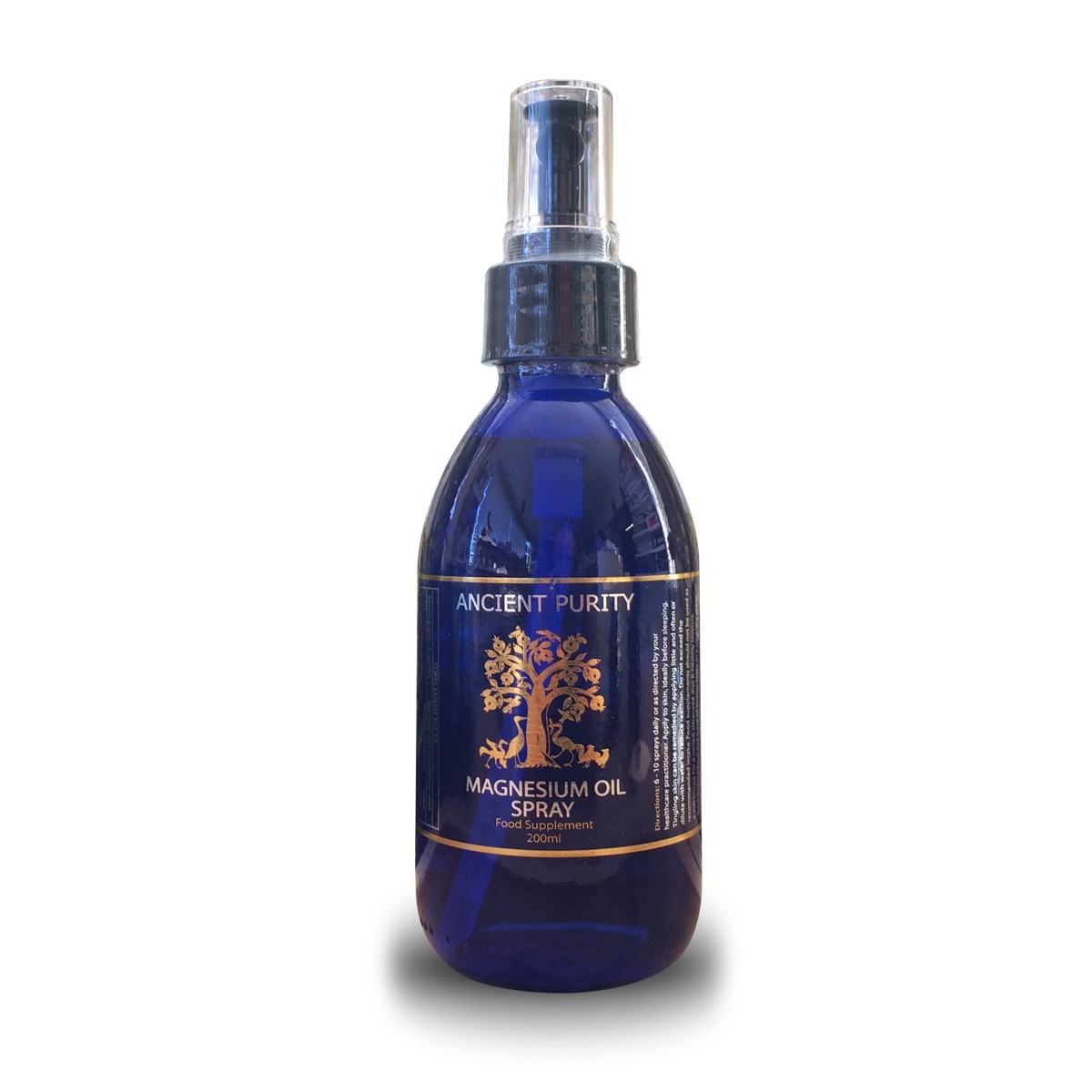
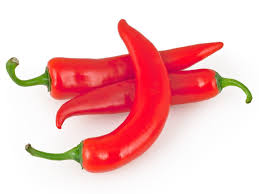
Mate, another brilliant post. I'll be re-reading this again and again.
So many things I wasn't aware of. Thanks for the great research and knowledge buddy.
Downvoting a post can decrease pending rewards and make it less visible. Common reasons:
Submit
Hey thanks @tremendospercy I'm really glad you were able to take something from the post. I've tried to choose foods and supplements that actually empower each other. There is so much that can be done but people are literally dying through lack of knowledge :(
Downvoting a post can decrease pending rewards and make it less visible. Common reasons:
Submit
Wow, that was a HUGE article!! Thanks for putting this all together, I will be sharing with a few relatives of mine. I need to start using that Celtic Sea Salt pronto...it sounds unbelievable!!
Downvoting a post can decrease pending rewards and make it less visible. Common reasons:
Submit
Hey @lyndsaybowes thanks for taking the time to read and comment, I really appreciate it! The Celtic Sea salt is amazing, everyone raves about Himalayan salt but when you think about it, it's actually been dead for potentially thousands of years. Such is the negativity that surrounds it if you try and explain the health benefits of salt people look at you as if you're crazy, but this is an entirely different beast :D .. I've tried to choose supplements that work together to create a powerful combination, so hopefully it will help someone at some point. Thanks again :)
Downvoting a post can decrease pending rewards and make it less visible. Common reasons:
Submit
That actually makes a lot of sense about the Himalayan salt...common sense actually now that you bring it up!! Good thinking @perceptualflaws!!
Downvoting a post can decrease pending rewards and make it less visible. Common reasons:
Submit
I've actually made sea salt. As long as you get clean ocean water, it's not hard. It's fun to add stuff to it too, like red wine, then evaporate off the liquid, and you're left with a delicious, colorful texture and flavor explosion to top off even the most sophisticated entree.
The props you get from making it yourself only add to the savor.
Downvoting a post can decrease pending rewards and make it less visible. Common reasons:
Submit
Red wine enhanced salt .. inspired, I like it! :)
Downvoting a post can decrease pending rewards and make it less visible. Common reasons:
Submit
Use something dry, for more robust flavor. Sweet wines just don't seem to work for me. The Vins de Pays (French country wines), or even skookum Spanish or Italian table wines. Carlo Rossi Paisano comes in cheap gallon jugs and is quite dry and robust. I've used Pinot Noir from domestic wineries to good effect.
The color is amazing, the texture and zest complements beef and similar entrees. Plus, it's fun. Where's the downside?
Downvoting a post can decrease pending rewards and make it less visible. Common reasons:
Submit
thank you for sharing valuable information.
Downvoting a post can decrease pending rewards and make it less visible. Common reasons:
Submit
No problem, thanks for reading and commenting :)
Downvoting a post can decrease pending rewards and make it less visible. Common reasons:
Submit
Yes @perceptualflawsa brilliant and visually pleasing factual post, full of everything one could possibly want to know on how to avoid deficiency of body snd soul !! brillaint work easy upvote my friend )
Downvoting a post can decrease pending rewards and make it less visible. Common reasons:
Submit
Hey thanks for the support my friend, I really appreciate it! I really feel that now is the time to be strong and take control of our own lives. Knowledge is power my friend and to hold that power in our hands is to liberate our minds. Thanks again @gomeravibz :)
Downvoting a post can decrease pending rewards and make it less visible. Common reasons:
Submit
@minnowpond1 has voted on behalf of @minnowpond. If you would like to recieve upvotes from minnowponds team on all your posts, simply FOLLOW @minnowpond.
Downvoting a post can decrease pending rewards and make it less visible. Common reasons:
Submit
@royrodgers has voted on behalf of @minnowpond. If you would like to recieve upvotes from minnowponds team on all your posts, simply FOLLOW @minnowpond.
Downvoting a post can decrease pending rewards and make it less visible. Common reasons:
Submit
@mrainp420 has voted on behalf of @minnowpond. If you would like to recieve upvotes from minnowponds team on all your posts, simply FOLLOW @minnowpond.
Downvoting a post can decrease pending rewards and make it less visible. Common reasons:
Submit
This wonderful post has received a bellyrub 10.24 % upvote from @bellyrub thanks to this cool cat: @perceptualflaws. My pops @zeartul is one of your top steemit witness, if you like my bellyrubs please go vote for him, if you love what he is doing vote for this comment as well.
Downvoting a post can decrease pending rewards and make it less visible. Common reasons:
Submit
Congratulations! This post has been upvoted from the communal account, @minnowsupport, by perceptualflaws from the Minnow Support Project. It's a witness project run by aggroed, ausbitbank, teamsteem, theprophet0, someguy123, neoxian, followbtcnews/crimsonclad, and netuoso. The goal is to help Steemit grow by supporting Minnows and creating a social network. Please find us in the Peace, Abundance, and Liberty Network (PALnet) Discord Channel. It's a completely public and open space to all members of the Steemit community who voluntarily choose to be there.
Downvoting a post can decrease pending rewards and make it less visible. Common reasons:
Submit
img credz: pixabay.com
Nice, you got a 4.6% @minnowbooster upgoat, thanks to @perceptualflaws
Want a boost? Minnowbooster's got your back!
Downvoting a post can decrease pending rewards and make it less visible. Common reasons:
Submit
The @OriginalWorks bot has determined this post by @perceptualflaws to be original material and upvoted it!
To call @OriginalWorks, simply reply to any post with @originalworks or !originalworks in your message!
To enter this post into the daily RESTEEM contest, upvote this comment! The user with the most upvotes on their @OriginalWorks comment will win!
For more information, Click Here!
Special thanks to @reggaemuffin for being a supporter! Vote him as a witness to help make Steemit a better place!
Downvoting a post can decrease pending rewards and make it less visible. Common reasons:
Submit
There were some things I did not know thank you
I'm a security expert ,If you want or if you have time in your hand, you can take a quick look at my last post, maybe it will be useful to you...
Downvoting a post can decrease pending rewards and make it less visible. Common reasons:
Submit
Thanks for pointing me this way. Lots of stuff here I love, but have too neglected due to bachelor habits. Ever make ghoulash from macaroni and ketchup? Yeah, me neither, because it just wouldn't be the same without the tasty cheese packet!
Anyway, from the good recommendations here I am inspired to cook more often, and of the kinds of foods I like most. From Algeria to Greece, I love Mediterranean food.
Not really getting the kefir idea yet, but will research that and come back with questions should I fail to grasp exactly what I need to do. I like yoghurt, so have no aversion to fermenting. Imma look into it, but will come with hat in hand begging for crumbs from the master's table regarding kefir if I fail to get a grip on it.
Thanks very much!
Downvoting a post can decrease pending rewards and make it less visible. Common reasons:
Submit
I believe there was some research carried out a few years back that showed people recovering from heart attacks (high cholesterol etc) that a Mediterranean diet can be more beneficial than the statins that are handed out like smarties. In terms of Kefir .. I mention it because by the time most adults enter their 50's they're suffering from leaky gut .. the Kefir helps maintain a healthy gut flora balance and thus enables a greater absorption of the nutrients I've highlighted in the post. Indeed, once people reach their twilight years a leaky gut ensures they pass (and thus see none of the benefits) most of the nutrients they eat.
Downvoting a post can decrease pending rewards and make it less visible. Common reasons:
Submit
I've not understood how to make kefir, and have been sidetracked constantly (as we all seem to be), so haven't run a search. If you have a link handy to a site that explains how to make and use it, I'd appreciate it.
But I really oughta be able to look it up.
Downvoting a post can decrease pending rewards and make it less visible. Common reasons:
Submit